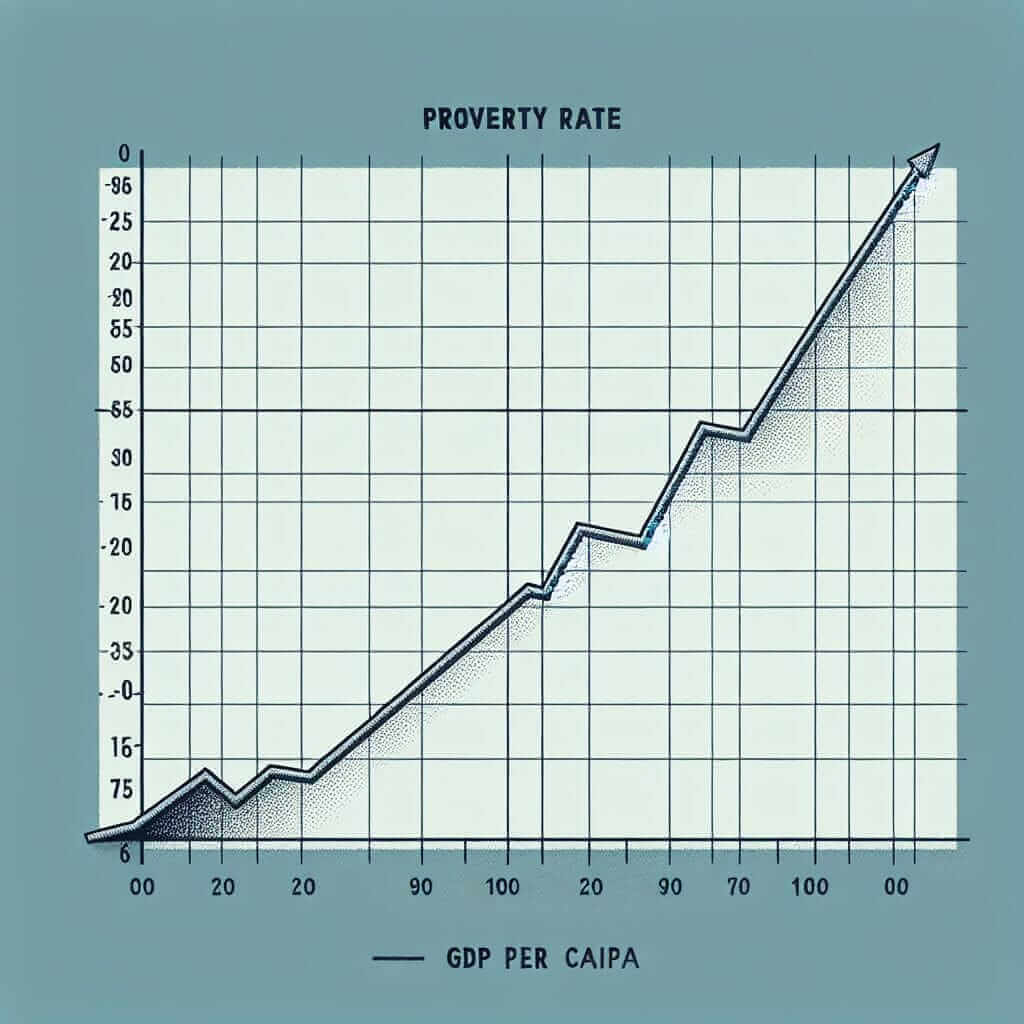The impact of economic policies on poverty rates is a topic that has appeared multiple times in IELTS Writing Task 2. Over the years, examiners have focused on issues related to economic stability, social inequality, and public welfare. Analysing how different economic strategies either reduce or exacerbate poverty can help candidates better prepare for future essay prompts.
Common IELTS Writing Task 2 Prompts:
- “Some people believe that economic growth is the best way to end world poverty while others believe that economic growth must be stopped as it damages the environment too seriously. Discuss both views and give your opinion.”
- “Economic policies play an essential role in reducing poverty. To what extent do you agree or disagree with this statement?”
- “Analyze the impact of government policies on poverty reduction. Provide examples and evidence to support your view.”
For this article, we will focus on the most likely prompt to appear in an IELTS test:
“Economic policies play an essential role in reducing poverty. To what extent do you agree or disagree with this statement?”
Analysis of the Essay Prompt
The prompt requires you to evaluate and discuss the role of economic policies in reducing poverty. You must present a clear standpoint, either agreeing, disagreeing, or partially agreeing with the statement. Your essay should include relevant examples, logical reasoning, and ample evidence to support your perspective.
Sample Essay
Economic policies significantly influence the alleviation of poverty. Some experts argue that proper economic frameworks can deliver substantial improvements in living standards and diminish poverty levels. This essay agrees that well-implemented economic policies are crucial to reducing poverty. Three key areas will be examined to support this view: economic growth, income redistribution, and social welfare programs.
Economic growth policies have historically proven to elevate poverty-stricken regions. For instance, countries like China and India have adopted growth-centric policies leading to notable reductions in poverty rates. By fostering a conducive environment for businesses and encouraging foreign investments, these nations have created job opportunities, which directly benefit low-income households.

Income redistribution through taxation and social safety nets is another pivotal economic policy to address poverty. Progressive taxation ensures that higher-income groups contribute more to the public treasury, funding social initiatives aimed at the impoverished. Programs such as unemployment benefits, subsidies, and education grants allow marginalized communities to have a fair chance at improving their socio-economic status.
Moreover, targeted social welfare programs have demonstrated significant success in combatting poverty. Conditional cash transfers, for example, have been instrumental in providing immediate financial relief while ensuring recipients meet specific social criteria such as children’s school attendance or vaccinations. Initiatives like Brazil’s Bolsa Família have lifted millions out of extreme poverty by ensuring a minimum level of income security.
In conclusion, economic policies play an essential role in reducing poverty. Through fostering economic growth, implementing income redistribution mechanisms, and developing effective social welfare programs, governments can significantly mitigate poverty levels. Thus, it is apparent that strategic economic policymaking is indispensable in the fight against poverty (283 words).
Important Tips for Writing the Essay
- Structured Argumentation: Ensure your essay is well-organized with a clear introduction, body paragraphs, and conclusion.
- Use Examples and Evidence: Support your arguments with real-world examples and statistical data where possible.
- Balanced Consideration: Discuss various facets of economic policies and provide a balanced viewpoint before concluding.
Advanced Vocabulary
- Alleviation (n) /əˌliːviˈeɪʃən/: the act of making something less severe.
- Marginalized (adj) /ˈmɑːrdʒɪnəlaɪzd/: treated as insignificant or peripheral.
- Conducive (adj) /kənˈdjuːsɪv/: making a certain situation likely or possible.
- Redistribution (n) /ˌriːdɪˌstrɪbjuːˈʃən/: the distribution of something in a different way, typically to achieve fairness.
- Subsidy (n) /ˈsʌbsɪdi/: a sum of money granted by the government to assist an industry or business.
- Mechanism (n) /ˈmɛkəˌnɪzəm/: a system of parts working together in a machine; a piece of machinery.
- Statistical (adj) /stəˈtɪstɪkəl/: relating to the use of statistics.
- Instrumental (adj) /ˌɪnstrʊˈmɛntl/: serving as a means of pursuing an aim or policy.
- Progressive Taxation /prəˈɡrɛsɪv tæksˈeɪʃən/: a tax that takes a higher percentage of income from higher-income earners.
Conclusion
This article has examined the impact of economic policies on poverty rates, providing an essay model and analytical insights to enhance understanding. Topics like labor markets and economic policy are highly relevant and frequently tested in IELTS exams. Candidates should practice responding to similar prompts to excel in their writing tasks. Future prompts might focus on nuanced aspects of economic policies, such as their impact on specific demographics or regions.
For further practice, learners may explore linked content on economic stability and social inequality and the effects of economic policies on public welfare.